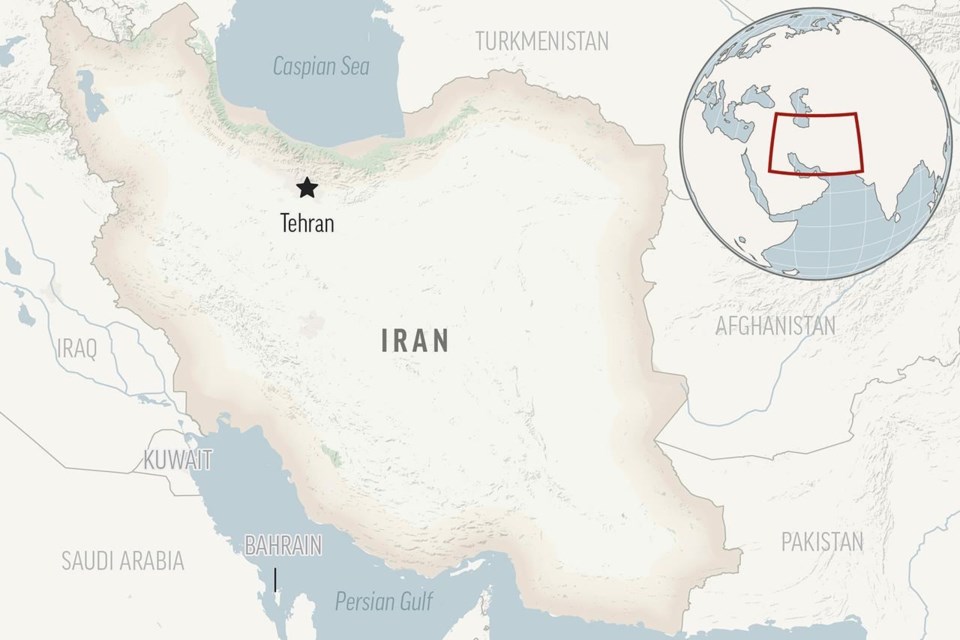DUBAI, United Arab Emirates (AP) — Iranian police said Wednesday that 110 suspects have been arrested in connection with the suspected poisoning of thousands of girls in schools across the country.
Students say they have been sickened by noxious fumes in incidents dating back to November that have mainly occurred in girls' schools. Authorities say they are investigating, but there has been no word on who might be behind the incidents or what — if any — chemicals have been used.
Unlike neighboring Afghanistan, Iran has no history of religious extremists targeting women's education, even during the height of its 1979 Islamic Revolution. There have been no fatalities, and some officials have suggested that mass hysteria might have played a role.
Gen. Saeed Montazerolmehdi, the police spokesperson, announced the arrests in remarks carried by Iranian media. He also said police had confiscated thousands of stink bomb toys, indicating that some of the alleged attacks might have been copycat pranks.
Others appear to be more serious, with hundreds of students hospitalized, according to local media reports and rights groups.
Iran has heavily restricted independent media and arrested dozens of journalists since the outbreak of nationwide antigovernment protests last September. It has also targeted reporters covering the poisonings, even as officials have provided few details about what is happening.
A lawmaker on a government panel investigating the incidents said earlier this month that as many as 5,000 students have complained of being sickened in 230 schools across 25 provinces. Human Rights Activists in Iran, a group that has closely monitored the recent protests, has put the number at over 7,000 students.
The World Health Organization documented what might have been a similar phenomenon in Afghanistan from 2009 to 2012, when hundreds of girls across the country complained of strange smells and poisoning. No evidence was found to support the suspicions, and WHO said it appeared to be a “mass psychogenic illness.”
The Associated Press



